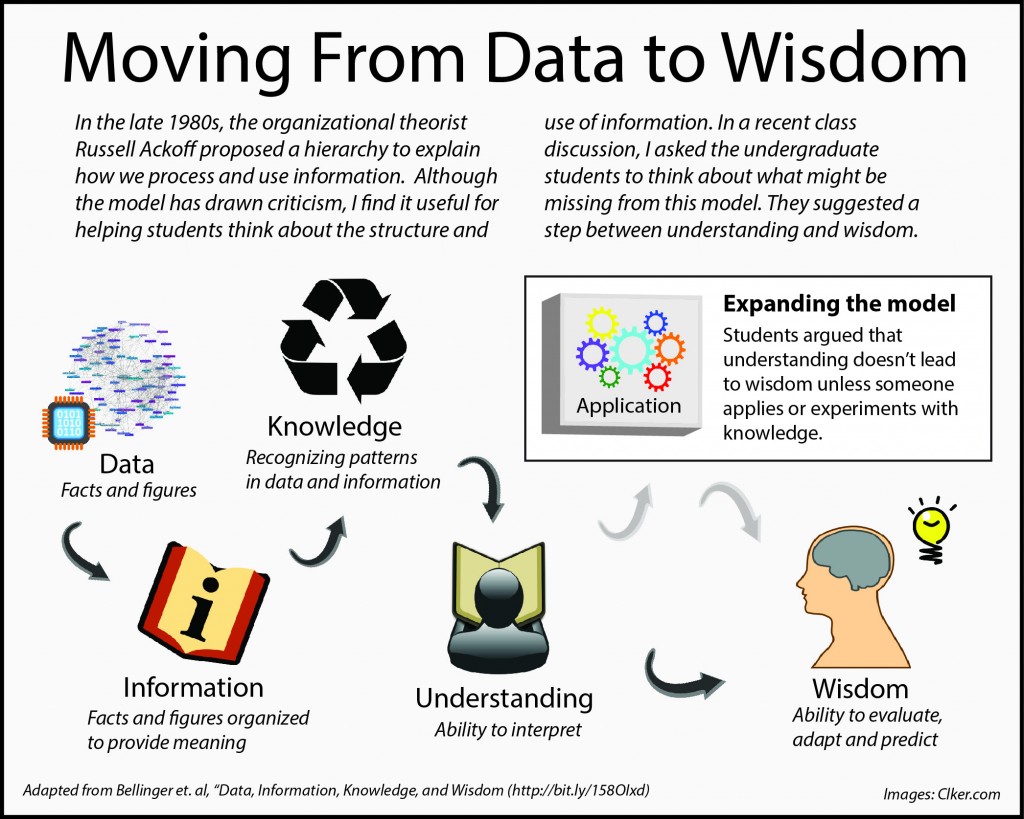I got a reminder this week of the value of collaboration.
In my 300-level hybrid class Infomania, I asked students to critique a hierarchical model of information and information processing explained by Gene Bellinger, Durval Castro and Anthony Mills.
The model, originally proposed by the organizational theorist Russell Ackoff, is often portrayed as a pyramid with data at the bottom and wisdom at the top. The model has come under criticism for being too simplistic, and yet I find it useful in helping students consider the complexities of information.

In Infomania, students work in one of five groups online and in person. We generally have one class period each week devoted to discussion and another devoted to project work.
At the start of discussion this week, I gave each group a different question related to the readings and then had students explain what their groups talked about and what conclusions they had reached.
I was reluctant to assign the question about information hierarchy, fearing that it would be too difficult. I was curious, though, so I asked students to consider this: What, if anything, is missing from Ackoff’s hierarchy of information?
When it was their turn, the students who had that question didn’t hesitate. They said the model needed a better explanation of how one moves from understanding to wisdom, the top two layers of the hierarchy. To truly gain wisdom, they said, you have to apply your understanding.
I was blown away. They had altered an established theory of information, making it not only more meaningful but more useful.
I asked another group to explain the components and importance of digital literacy, the focus of an article by Howard Rheingold. One of those components is collaboration. At one point in the discussion, I asked: What’s the value of collaboration?
One student replied: “Two heads are better than one.”
True, I said. But those two have to listen to each other, engage each other and share meaningful ideas.
That’s the real value of collaboration.

Doug Ward is an associate professor of journalism and a fellow at the Center for Teaching Excellence. You can follow him on Twitter @kuediting.
